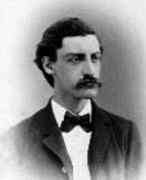Person: Atwood, George

George Atwood was an English mathematician best known for his invention of a low-friction pulley system.
Mathematical Profile (Excerpt):
- In his final year at the school in 1764 George was captain of the school.
- Atwood was a very popular lecturer at Cambridge, giving many demonstrations in his lectures.
- William Pitt, British prime minister (1783-1801, 1804-06), was one of the many students who attended Atwood's popular lectures and later, when Pitt had achieved high office, he employed Atwood in the Treasury.
- However this was still some way into the future when Atwood gave up his position as tutor at Cambridge in 1779 and tried unsuccessfully to obtain a position with the board of longitude.
- In the summer of 1781 Atwood sent the Royal Society details of his applications of geometry to the problems of correcting sightings through sextant mirrors.
- Atwood supported Hutton, as did Maseres, Maskelyne, Landen, Glenie, Hornsby and others, accusing Banks of using excessive authority and of being "despotic".
- Atwood, and the others in the mathematicians' mutiny, strongly supported this as we noted above.
- In 1784 Pitt arranged that Atwood be given £500 a year and an office in the Treasury.
- Atwood is best known for a work A Treatise on the Rectilinear Motion and Rotation of Bodies (published by Cambridge University Press in 1784) which is a textbook on Newtonian mechanics describing impact and simple harmonic motion.
- It also describes in detail a machine, now known as Atwood's machine, to demonstrate the laws of uniformly accelerated motion due to gravity.
- The machine had been constructed by George Adams, a London instrument maker, to Atwood's specification and the first description of it appeared in French in 1780.
- Alessandro Volta had requested the machine, and copies had also been sent to Spain, but Atwood was pressed to publish a description.
- Atwood also published on equations for the use of Hadley's quadrant.
- Atwood was a renowned amateur chess-player and among other opponents played games against the famous French player Philidor, who was regarded as the unofficial world champion.
- One of most interesting features of Atwood as a chess player is that he recorded and preserved some of his games, an unusual practice at that time.
- These records have survived, among them the last games that Philidor played which were against Atwood at Parsloe's Club in London on 20 June 1795.
- Atwood was highly involved with mathematical calculations which were needed by governments to run the country effectively.
- It was said that this intense work and calculation had broken Atwood's health.
Born October 1745, Westminster, London, England. Died 11 July 1807, Westminster, London, England.
View full biography at MacTutor
Tags relevant for this person:
Astronomy, Origin England
Thank you to the contributors under CC BY-SA 4.0! 

- Github:
-

- non-Github:
- @J-J-O'Connor
- @E-F-Robertson
References
Adapted from other CC BY-SA 4.0 Sources:
- O’Connor, John J; Robertson, Edmund F: MacTutor History of Mathematics Archive
